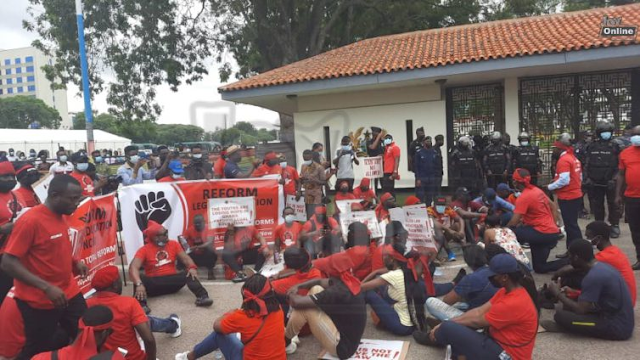A section of the LLB holders who were denied admission into the Ghana School of Law to read the professional course have dragged the General Legal Council to court.
They are therefore praying the Human Rights Division of the Accra High Court to compel the Ghana School of Law to admit them into the institution, having met the required pass mark (50%) in the entrance exam.
The 143 claimants are part of 499 others who were denied admission.
Despite meeting the 50% pass mark, the school published a retroactive communiqué which indicated that only candidates who scored at least 50% in each of the two sections of the exam were considered for admission.Therefore, candidates who scored lower than 50% in a section but overperformed in the other section to make up for the weak section, crossed the pass mark of 50% yet were denied admission.
The school has stated that its decision is final. However, the affected students claim this new rule was unknown to them before they took the exams.
The National Association of Law Students protested the decision in a march across the major streets of Accra on Wednesday, October 20.
Clad in red and black attire the students hoisted placards with inscriptions expressing their displeasure at the Black Star Square in Accra.They subsequently presented a petition to Parliament which was received by the Minority Leader Haruna Iddrisu, on behalf of the Speaker, and the Presidency.
Meanwhile, President Akufo-Addo has said there is no place for the students denied admission in the law school, stating that it is an unfortunate situation.
“For the time being, there’s no space in the Law School for them, and this is a problem. There are several others before them who unfortunately fell into the same pit. It may be that this group has decided to be more vocal than their predecessors,” he said on Peace FM on Thursday.
The President explained that the situation is not in the country’s best interest.But in their writ, the students want the court to declare the action of the Ghana School of Law as short of expected reasonableness, citing the classic Wednesbury Principle.


